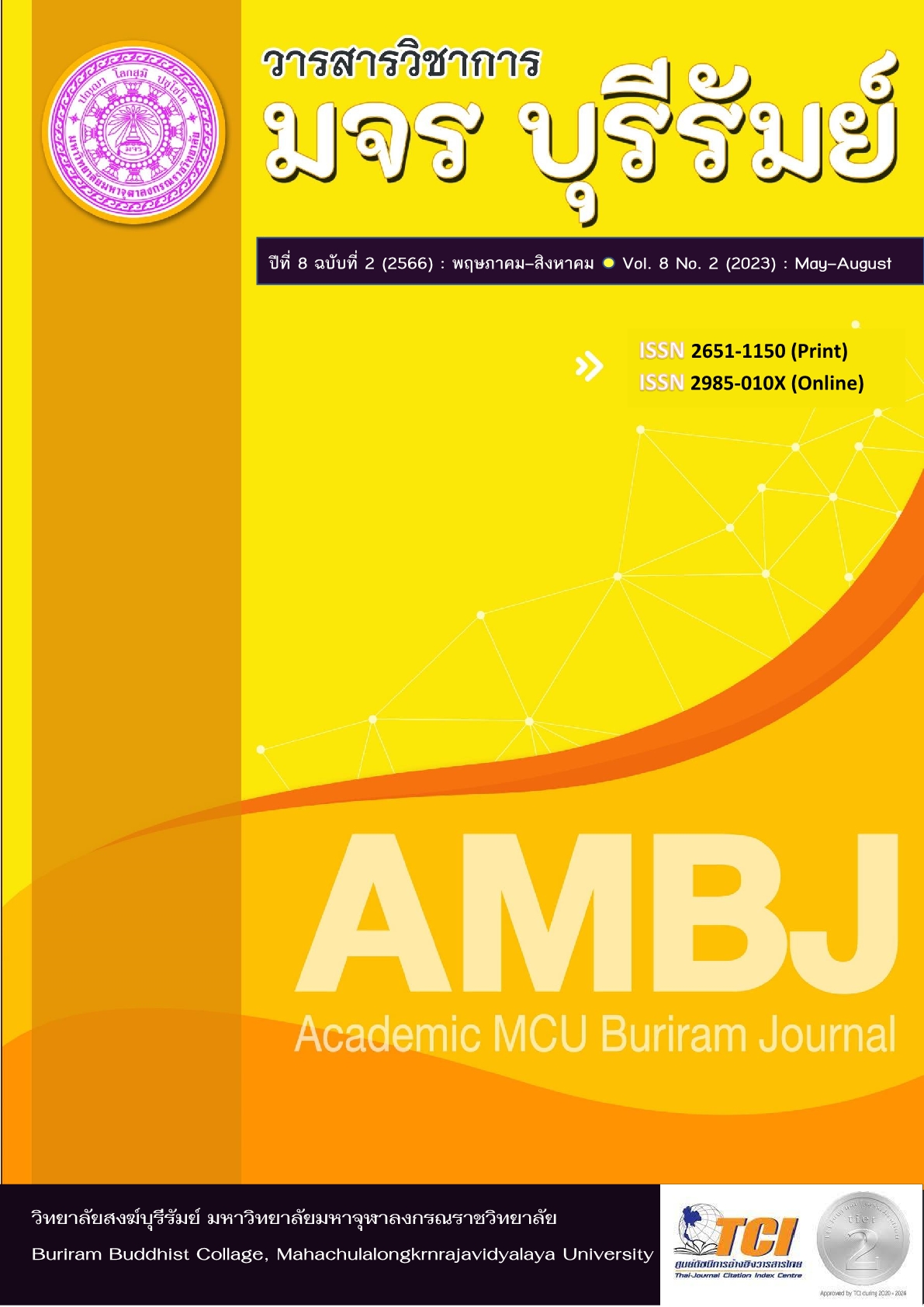An Analytical Study of the Problem of Buddhist Ethics in Dhammapadaṭhakathā according to Buddhist Ethics
Keywords:
Ethical Problems, Dhammapad-aṭṭhakathā Scriptures, Buddhist EthicsAbstract
The purpose of this research were: 1) to study the ethical problem in the Dhammapadṭhakathā, 2) to study the judging criteria of Buddhist ethics, and 3) to analyze of judging on ethical problems in the Dhammapadthakathā scriptures based on Buddhist ethics. It is a documentary research by collecting data from Trīpitaka, Dhammapadthakathā and related researches, and presented the research results by inductive analytical descriptive method.
The research results found that:
1. The Dharmapada is the verse of the Dharma that the Lord Buddha spoke in short stanzas for different times, places, and different people, totaling 423 verses. It is a scripture composed to explain or interpret the words or text of the Dhammapada spells. It has the characteristics of poetry or incantations. Specifically, there are 3 aspects of ethical problems in the Dhammapadthakathā scriptures, namely physical or physical misconduct, verbal or verbal misconduct, and mental or mental misconduct.
2. Criteria for judging according to Buddhist ethics are the criteria that appear in the Tripitaka based on the criteria for judging according to the type of karma, namely good and bad karma following to the views of Buddhist scholars are 2 persons, namely, Phra Dhammapitaka (P.A. Payutto) and Wasin Indrasara.
3. Analyzing ethical problems in the Dhammapadṭhakathā scriptures in three aspects: the acrobatics aspect is about Phra Putikattathera, who used to be a bird hunter; and a pig dealer named Chuntasukrik, who lives by raising pigs and slaughtering a large number of pigs. The actions of the two were considered duties, On the other hand, verbal action speaks of inciting divisions (Pisuṇāvācā) and idle chatter is talk of usefulness and destruction; and the mental karma aspect, which refers to the covetousness of other people's property (Aphicha) which appears in the brahman liar (Kuhaka Brahmana) and the malice towards other people and other beings which appears in the kukkutamit.
References
พระพรหมคุณาภรณ์ (ป.อ. ปยุตฺโต). (2542). พุทธธรรม ฉบับปรับปรุงและขยายความ. พิมพ์ครั้งที่ 11. กรุงเทพมหานคร: มหาจุฬาลงกรณราชวิทยาลัย.
มหาจุฬาลงกรณราชวิทยาลัย. (2539). พระไตรปิฎกภาษาไทย ฉบับมหาจุฬาลงกรณราชวิทยาลัย. กรุงเทพมหานคร: โรงพิมพ์มหาจุฬาลงกรณราชวิทยาลัย.
วศิน อินทสระ. (2549). พุทธจริยศาสตร์. พิมพ์ครั้งที่ 2. กรุงเทพมหานคร: โรงพิมพ์ธรรมดา.
วิทย์ วิศทเวทย์. (2538). บทวิเคราะห์พุทธจริยศาสตร์เถรวาท. พุทธศาสน์ศึกษา, 2(1), 54.
โสวิทย์ บำรุงภักดิ์. (2565). กรรม คือ การกระทำ: เกณฑ์วินิจฉัยทางพระพุทธศาสนาและปรัชญา. ขอนแก่น: เอ็มมี่ ก๊อปปี้เซนเตอร์.
Downloads
Published
How to Cite
Issue
Section
License
Copyright (c) 2023 Academic MCU Buriram Journal

This work is licensed under a Creative Commons Attribution-NonCommercial-NoDerivatives 4.0 International License.
ทัศนะและความคิดเห็นที่ปรากฏในบทความวารสารฉบับนี้ถือเป็นความรับผิดชอบของผู้เขียนบทความนั้น ไม่ถือเป็นทัศนะและความรับผิดชอบของบรรณาธิการ





